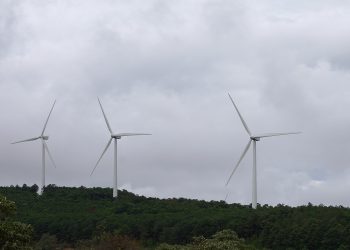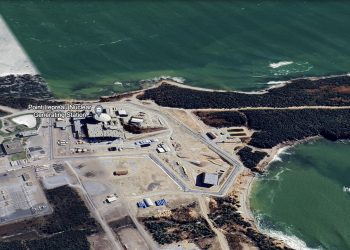The effort toward local governance reform has had a long, and mostly unsatisfying, history in the province. Ongoing provincial efforts to reform local governance since the last major overhaul in the late 1960s, as well as continued commentary from both municipalities and unincorporated areas express this discontent.
In 1966 and shortly thereafter, the provincial government undertook significant changes to its structure. It modified the level of government providing specific services as well as the associated taxation. The reforms also removed the democratic vote for local government representatives serving approximately 32 per cent of New Brunswick’s current population. In reports in the ensuing years, this lack of local representation in rural areas has been referred to as the democratic deficit. Unincorporated areas do not have direct responsibility for, or management of, their local affairs.
New Brunswick now has 104 local governments and an additional 236 Local Service Districts (or “unincorporated areas”). Cooperation between communities on financing the shared costs of service delivery continues to be contentious, as do many of the solutions proposed over the years.
Over the decades, most provincially funded reports related to local governance reform point to the need to lessen the number of governance entities to see increased efficiency in local governance. And while fiscal austerity is a very real limitation in New Brunswick for service delivery, the issue goes much deeper.
Past solutions proposed for amalgamation have raised concerns about increased taxation, loss of identity and having development decisions imposed on local communities by non-residents.
As pointed out in Premier David Alward’s 2011 Action Plan for a New Local Governance System in New Brunswick, the tax system is complex and not well understood. In their 2018 report, Landry and Guillemot acknowledged a fear in LSDs that local governance reform will increase taxes. This fear is likely heightened by the fact that many rural residents of New Brunswick are economically disadvantaged and may not have the means to pay tax increases.
Municipalization has been proposed, with mixed results and little uptake. Some communities inquiring about or trying this route have been met with barriers to entry imposed by the provincial government, relative to thresholds for population and budgets.
Urban and rural areas tend to view development very differently. While development and associated tax base increases tend to be the raison d’être of municipal areas, in LSDs many types of development are seen as incompatible with the lifestyles and livelihoods of the community. At the same time, municipalities are frustrated by developments just outside their borders that avoid municipal taxation.
In the fall of 2020, the former New Brunswick Department of Environment and Local Government was reorganized and now is two separate departments, Environment & Climate Change and Local Government & Local Governance Reform (LG&LGR).
Minister Daniel Allain now leads LG&LGR; the department has been busy and has a tight schedule planned. LG & LGR proposes that by the end of 2021, initial implementation steps of reform will be taking place.
As expected, some people are concerned with the short consultation period and the pandemic-imposed regulations that restrict communication. Though the internet service to take part in virtual meetings is dependable in many cities, not all LSD areas have the bandwidth necessary to productively participate in online forums.
In mid-January this year LG & LGR publicly launched its initiative to reform local governance with a new website. It since has hosted virtual meetings with numerous stakeholders.
However, according to many stakeholders, the discourse so far lacks detail, perhaps to be expected at this early stage. Not expected though, is inconsistency in the messaging from the provincial government. As expressed to Minister Allain in letters from LSD Advisory committees, that is what some participants believe they have received.
In response to the reform initiative, a group of Local Service Districts has formed and incorporated the Union of Unincorporated Areas of New Brunswick (UUANB) as not-for-profit organization. The step of bringing LSDs together as an incorporated body aims to accomplish many goals, primarily to give collective voice to LSDs in the reform process underway.
The UUANB sees itself as a method to bring attention to common concerns, and to investigate, educate, communicate, and express factual information representing the unique interests of the unincorporated areas of NB both collectively and individually.
The first project in its sights is to immediately conduct an independent study on Governance Reform from the LSD perspective. The UUANB believes that Local Service Districts are not getting a fair voice in the reform process, a continuation of what they believe has been imbalanced representation for years on the regional level. However, the structure to fund this proposed study was not in place before the UUANB was formed. LSDs do not have bank accounts as the province holds all funding for unincorporated areas in trust, and in bulk.
Now, as the UUANB aims to fill its 12 planned Board of Director (BOD) positions, it has opened the door to possible new funding arrangements, to help define and recommend local governance reform from the LSD perspective. The UUANB is currently aiming for a BOD with one member from each of the 12 regions, and eight regions have thus far been engaged. The UUANB is however, interested in the concerns of each of the 236 LSDs and is currently working to contact persons, LSDs, and businesses located in LSDs to join in discussion and action moving forward.
Kim Reeder is a senior policy advisor with the RAVEN project at the University of New Brunswick who is involved in many rural community initiatives.






![‘Continuum of genocide’: Pentagon funding of Sisson mine provokes renewed opposition from Wolastoq Elders [video]](https://nbmediacoop.org/wp-content/uploads/2025/07/SissonMine-2-120x86.jpg)



